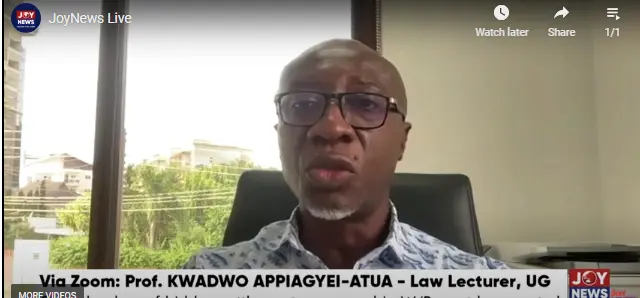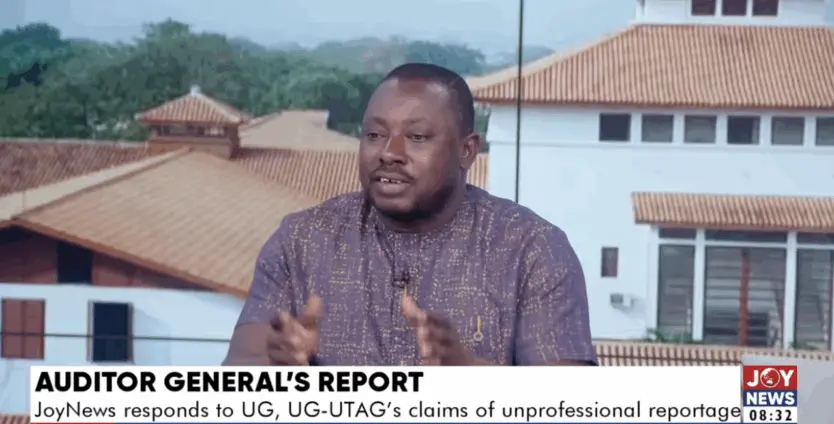The debate over economic management in Ghana recently intensified when Osman Abdulai Ayariga, CEO of the National Youth Authority (NYA), publicly contrasted the perceived economic successes of current Finance Minister Ato Forson with the eight-year tenure of former Vice President Dr. Mahamudu Bawumia. Ayariga’s remarks, made on GHOne TV, called for Bawumia to apologize to the nation, particularly the youth and the opposition NDC, for what Ayariga characterized as profound economic mismanagement. At the heart of Ayariga’s argument is the comparison between what he sees as Dr. Bawumia’s failures and the apparent successes of Mr. Forson. This has ignited a significant debate about who is better suited for *economic management in Ghana*: *Ato Forson* or *Mahamudu Bawumia*.
According to Ayariga, the need for an apology stems from what he views as a series of broken promises and the imposition of harsh economic policies. He believes Bawumia’s time in office inflicted undue hardship on young Ghanaians, and that Forson’s actions in a mere four months have already begun to rectify the situation.
Bawumia’s 8-Year Legacy: A Critique
Ayariga asserts that Bawumia and his economic management team failed to effectively manage the nation’s currency during his eight-year tenure. He argues that the former Vice President made unfulfilled promises to the Ghanaian youth, creating a sense of disillusionment and mistrust. Ayariga also points to the implementation of what he describes as “punitive taxes,” specifically mentioning the e-levy and betting tax, as examples of policies that placed an undue burden on young Ghanaians. These measures, according to Ayariga, led to prolonged economic suffering, particularly impacting the financial well-being of the country’s youth. “What Bawumia and his seven-member Economic Management Team couldn’t do in eight years…” Ayariga stated, questioning the effectiveness of Bawumia’s leadership during his time in office.
Ayariga dismisses Bawumia’s recent apologies to NPP supporters as insincere and performative, labeling them as “shallow theatrics.” He suggests that these apologies are merely a deceptive tactic employed to conceal an unpopular track record and deflect criticism. According to Ayariga, a genuine act of contrition would necessitate a public admission of failure and a clear recognition of the current administration’s efforts to address the economic challenges facing the nation. He urges Ghanaians, especially the youth, to view Bawumia’s apologies with a healthy dose of skepticism, implying that they lack substance and should not be taken at face value. “If he’s going round apologising to his party supporters but still going on this tangent of deceiving Ghanaians, then they know he’s dishonest,” Ayariga asserted, further emphasizing his distrust of Bawumia’s motives.
Forson’s 4-Month Tenure: A Contrasting View
Ayariga credits *Ato Forson* with achieving significant economic progress in a relatively short period. He highlights Forson’s ability to accomplish in four months what Bawumia’s team allegedly failed to do in eight years, implying a stark contrast in their competence and effectiveness. While Ayariga doesn’t specify particular policies or achievements, his statement suggests that Forson has demonstrated a superior ability to manage the currency and address the prevailing economic challenges facing Ghana.
While Ayariga praises Forson’s initial performance, publicly available data presents a more nuanced picture. While it’s difficult to attribute significant economic shifts to a mere four-month period, recent trends offer some context. For example, inflation rates, while still elevated, have shown signs of easing in recent months. Some analysts attribute this to a combination of factors, including tighter monetary policy and improved fiscal discipline. Furthermore, the government has been actively engaged in negotiations with international creditors to restructure its debt, a move that could potentially unlock much-needed financial resources. It is important to view claims of dramatic economic success with caution, as sustainable economic improvement typically requires longer-term policies and consistent implementation. The true impact of *Ato Forson*’s policies remains to be seen.
Osman Abdulai Ayariga’s critique underscores the ongoing debate about *economic management in Ghana*, presenting a sharp contrast between the perceived legacies of Dr. Mahamudu Bawumia and *Ato Forson*. His accusations against Bawumia center on unfulfilled promises, burdensome taxes, and overall economic mismanagement, while he seemingly credits Forson with demonstrating early success in tackling these challenges. While a complete assessment necessitates a thorough analysis of economic data and policy impacts, Ayariga’s comments illuminate the political dimensions surrounding economic governance. As Ghana’s political landscape continues to evolve, scrutiny of both past and present administrations’ performance will undoubtedly persist.
Image Source: MYJOYONLINE






















